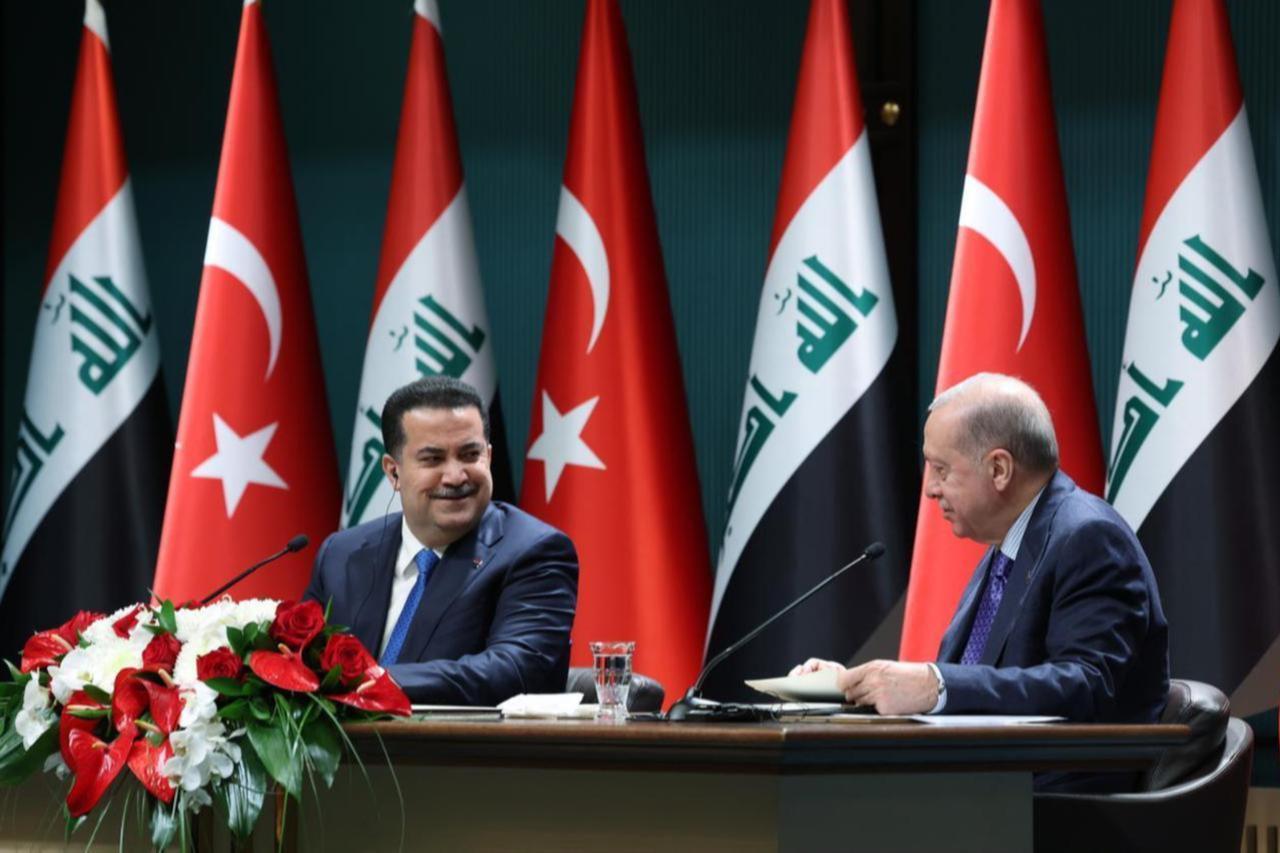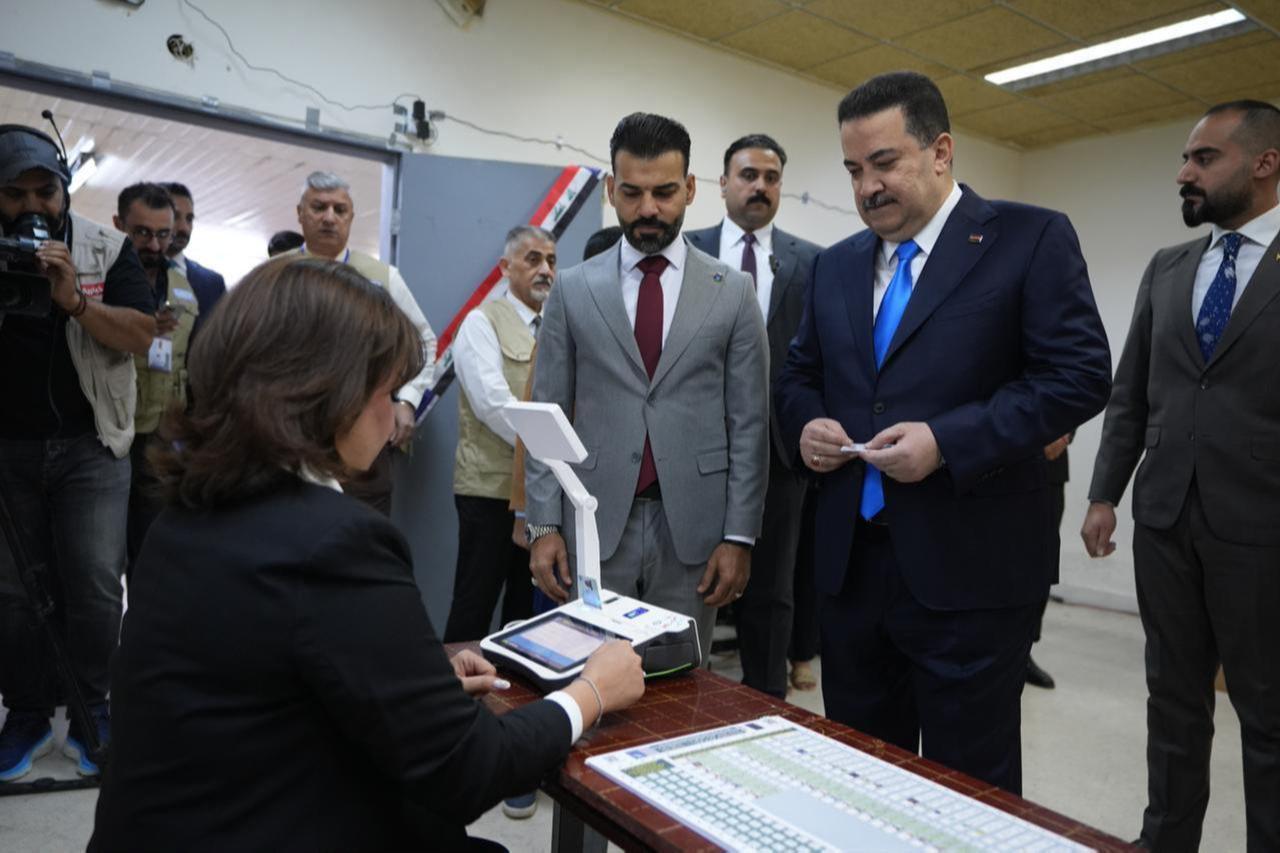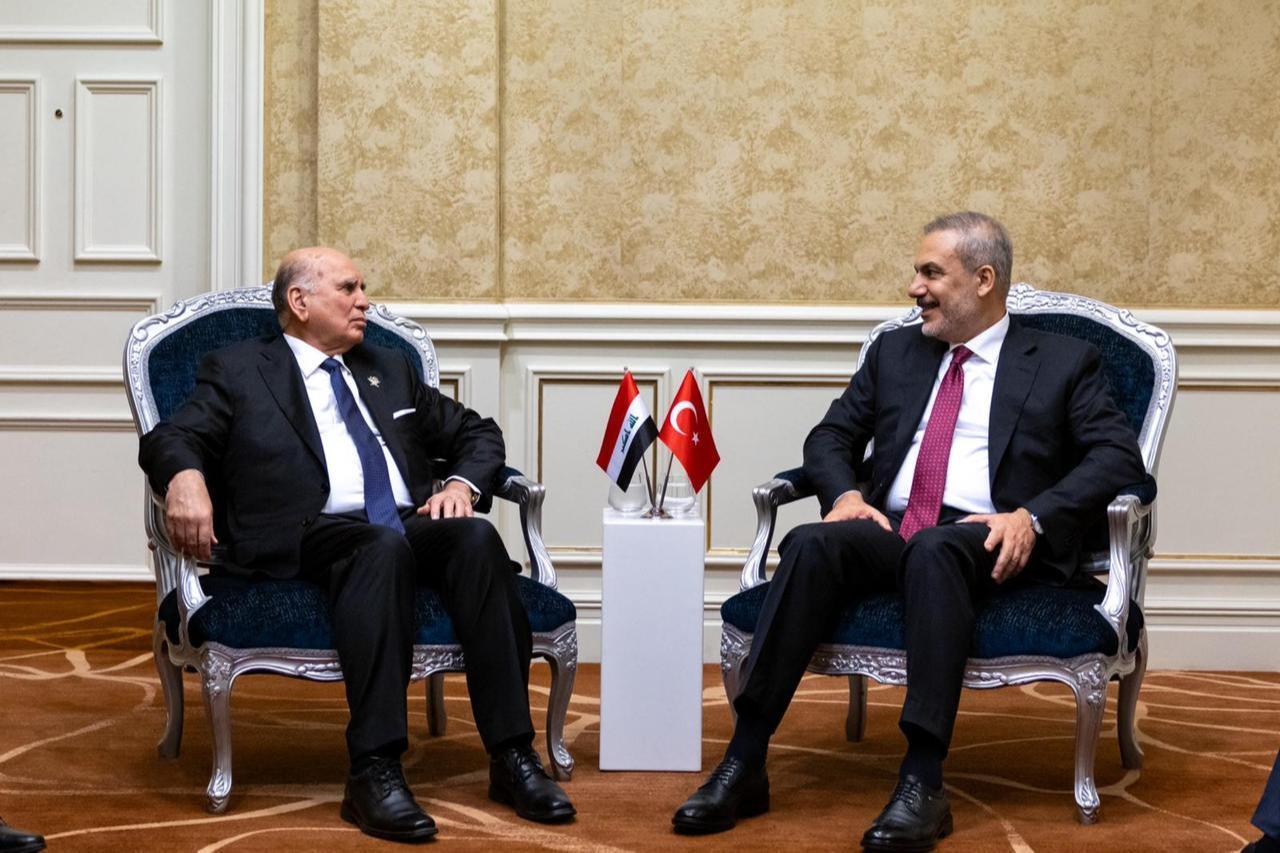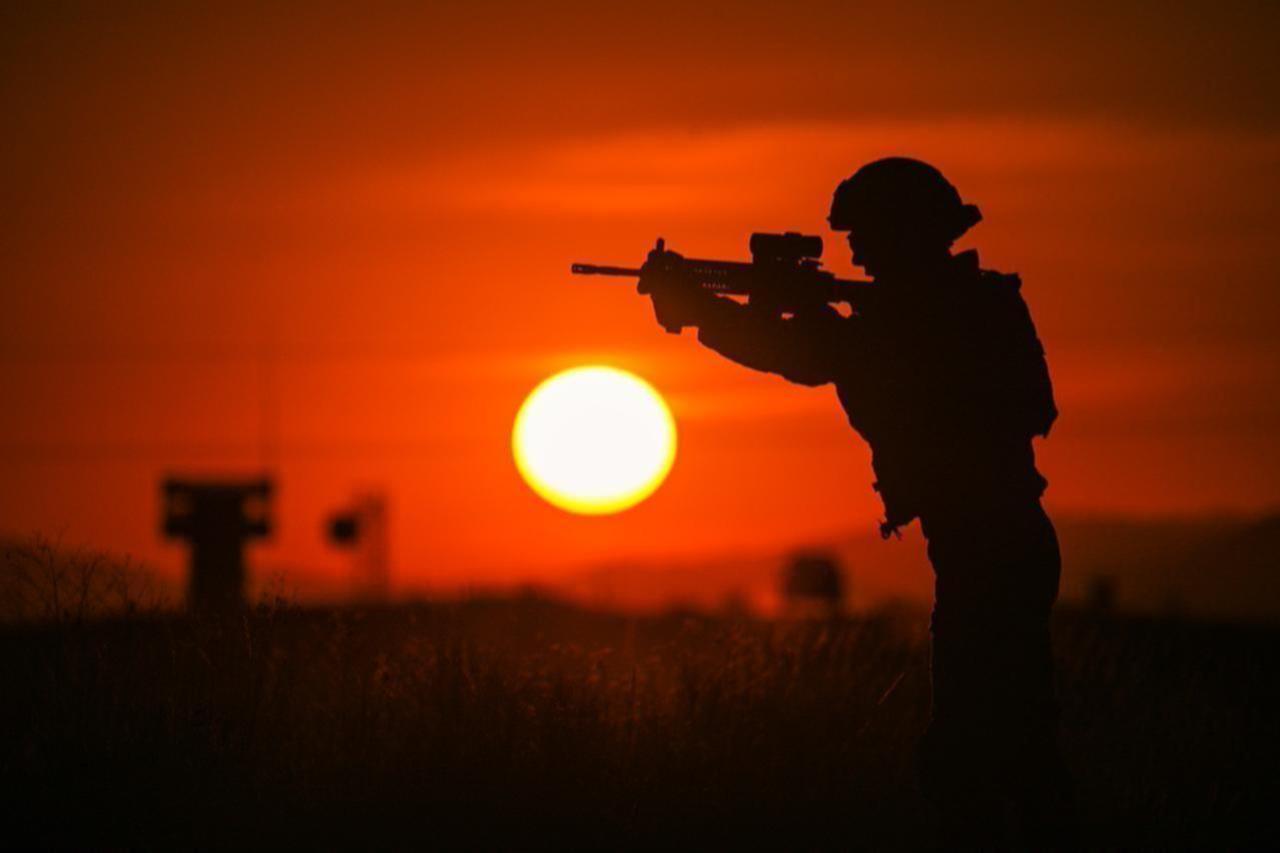
One of the major topics on Türkiye’s agenda is the general elections held in Iraq on Tuesday. Although the current Prime Minister al-Sudani was appointed by the Shiite Coordination Framework (CF) in 2022, his openness to cooperation with Washington has created discontent among Iran-aligned factions within the CF and those who oppose his consolidation of power through a second premiership.
Experts predict a government that will work more closely with the CF, excluding moderate figures like al-Sudani.
Moreover, many observers suggest that intra-Kurdish rivalry over the presidency, as seen in previous years, may again slow government formation.
However, regardless of the outcome, there will likely be no major shift in Türkiye–Iraq relations. Since 2024, bilateral ties have evolved into a multidimensional strategic partnership that includes, in addition to security cooperation, investment, economic support, and water-sharing.
As al-Sudani himself emphasized in May, “Regardless of the results, all political factions agree on sustaining and enhancing relations with Türkiye.”
For any future Iraqi government, the most challenging foreign policy task will be balancing relations between Iran and the United States, ensuring that Iraq remains outside the Iran–U.S. rivalry.
This must also be understood in the context of the planned conclusion of Operation Inherent Resolve (OIR)—launched in 2014 by the U.S.-led global coalition to defeat Daesh—set to end in September 2025 in Iraq.

In 2014, after the fall of Mosul and Tikrit to DAESH, the US troops—who had withdrawn from Iraq in 2011—returned. With OIR coming to an end, participating nations are expected to transition to bilateral security agreements with Iraq.
According to recent reports citing al-Sudani, rather than a full withdrawal, around 250–350 American military advisors and support personnel will remain at Ain al-Asad Air Base—the same base targeted by Iran in January 2020 after the assassination of Qasem Soleimani—and at al-Harir Air Base in the Kurdistan Region.
Their continued presence aims to provide surveillance and coordination support for U.S. forces stationed at al-Tanf in Syria, preventing DAESH from exploiting potential security vacuums.
Under the September 2024 U.S.–Iraq agreement, American forces are expected to complete the first phase of withdrawal by the end of September 2025 and the second phase by September 2026.
After the coalition forces in the KRG withdraw in September 2026, fewer than 2,000 U.S. troops—mostly based in Arbil—are expected to remain in Iraq.

Since 2003, Iran has played a decisive role in shaping Iraq’s governments and foreign policy, primarily through Shiite political factions. Although Iran’s influence has waned due to losses suffered by its proxies in Syria, Lebanon, and Hamas’ heavy losses in Gaza, it will continue to hold significant ideological and strategic influence over Iraq.
The Trump administration’s Iraq policy prioritized limiting Iranian influence, including efforts to disarm Iran-backed groups within the Popular Mobilization Forces (PMF) or the PMF as a whole.
Washington also expects Iraq to continue supporting international sanctions on Iran and achieving energy independence from it.
In the coming period, Iraq may face serious challenges as potential Iranian and pro-Iranian actors may attempt to exploit the emerging power vacuum. A new conflict involving Iran and Israel could expose Iraq to U.S. or Israeli airstrikes.
The new Iraqi government will therefore have to maintain its balancing act between Washington and Tehran carefully.
The PMF’s future role in Iraqi state structures will remain a central issue in U.S.–Iraq relations. It is still unclear whether Washington will press for the PMF’s complete dissolution or accept its integration into the Iraqi armed forces, as foreseen in a previous draft bill.
Although the PMF was officially placed under Iraqi army control in 2016, it has retained significant autonomy.

Since the 1990s, Türkiye has carried out numerous military operations in northern Iraq against the PKK. Following the establishment of the Kurdistan Regional Government (KRG) in 1992, Türkiye cultivated strong relations with Erbil, contributing to its development and fostering energy trade.
This allowed Türkiye to expand its military footprint in the region, targeting threats from the PKK, Daesh, and Iran-backed militias.
During the peak of the anti-Daesh campaign (2013–2017), Turkish forces trained both Kurdish peshmerga and the Iraqi National Guard. From 2018 onward, Türkiye began establishing permanent bases and posts in the KRG territory.
According to the Iraqi Army Chief of Staff, Türkiye operated five bases with over 4,000 soldiers by 2021, and the Turkish presence had increased from 37 different military points in 2020 to 100 in 2022.
For years, Baghdad viewed Türkiye’s cross-border operations as violations of its sovereignty. However, after 2021, Türkiye adopted a new regional strategy aimed at improving relations with its neighbors.
Taking into account the gradual US withdrawal from the region, Ankara, willing both to intensify its cross-border fight against the PKK and to resolve its energy disputes with Baghdad, particularly to resume oil imports from KRG halted in 2023, proceeded with a reset in its relations with the central government in Iraq.
This rapprochement reached a new level in August 2024 with the signing of a memorandum of understanding (MoU) on military, security, and counterterrorism cooperation between Türkiye and Iraq.
The agreement secured the inclusion of the PKK on Iraq’s list of banned organizations and established coordination mechanisms for Turkish operations in northern Iraq. The military cooperation also included provisions for joint training, information sharing, electronic warfare, cybersecurity, and the sale of Turkish UCAVs.
With the US gradually withdrawing from central Iraq, Türkiye views Iraq’s stability as vital to both countering PKK elements and limiting Iranian influence.
Ankara’s growing engagement with Baghdad is also driven by its desire to contain the PMF. While sectarian rivalry and Iran’s support for the PKK terrorist group have traditionally been the main sources of discord between Türkiye and Iran in Iraq—illustrated by the PMF’s backing of PKK-affiliated groups in the Sinjar region—their competition for influence has grown increasingly serious in recent years, as evidenced by PMF attacks on Turkish outposts and bases in Iraq in 2022 and 2023.
Türkiye’s military presence in Iraq was not limited to the KRG. Its long-standing base in Bashiqa, arguably used to support Sunni groups fighting the PMF and criticized by pro-Iranian Shiite politicians, was transformed with the 2024 MoU into a Joint Training and Cooperation Centre, while a Joint Security Coordination Centre was established in Baghdad.
Moreover, Türkiye has pursued direct dialogue with the PMF to improve security in Sinjar and Makhmur regions, as well as improve border security by offering even financial assistance.
This new line of cooperation was symbolized by an August 2025 meeting between Foreign Minister Hakan Fidan and PMF leader Faleh al-Fayyad, focusing on the Iraqi parliamentary bill aimed at integrating the PMF into Iraq’s regular army.
The conclusion of OIR and the U.S. transition to bilateral security cooperation with Iraq carries potential risks for both Iraqi and American security and national interests.
With Washington’s withdrawal, the politicization or sectarian fragmentation of Baghdad’s security forces could enable the resurgence of Daesh and similar terrorist organizations. Iran—and particularly Iran-led militias within the PMF—could increase their influence, threatening Iraq’s sovereignty.
These developments could also endanger the safety of the several hundred personnel at the NATO Mission in Iraq (NMI) tasked with preventing Daesh’s return and protecting Iraq against terrorism by training Iraq’s security institutions and conducting capacity-building missions.
Iraq could find itself caught in a conflict between Iran and the U.S./ Israel, aiming to counter these forces. This situation might also create tensions between Iraq and the regional countries. Reduced U.S. intelligence access and military presence will make it harder for Washington to monitor threats in the region.
Particularly after 2026, if the U.S. decides to completely withdraw its forces from the KRG, the delicate balance in relations between Baghdad and Erbil could be disrupted.
Against all these risks threatening Euro-Atlantic interests, Türkiye’s growing ties with Baghdad position it as a significant partner and an effective intermediary.
First, the Türkiye-led five-nation coalition to counter Daesh resurgence in the region demonstrates that Türkiye can play a larger role in counterterrorism efforts in both Syria and Iraq in the coming period.
The inclusion of Iraq, alongside Lebanon, Syria, and Jordan, in this pact provides Türkiye with the opportunity to act as a bridge between its Western allies and Iraq.
Regarding the PMF—a force that poses potential risks to U.S. and Euro-Atlantic interests—Türkiye’s policy of “conditional engagement” signals to Iran that it may legitimize the PMF if it cooperates with shared threats like the PKK, but will respond to its threats if Turkish or allied interests are endangered.
Having spent years countering the PMF, Türkiye has shifted toward engagement rather than exclusion, aiming to restore its relations with Iraq.
This approach could assist the U.S. in shaping its policy toward the PMF.
As a NATO ally, Türkiye has initiated cooperation with Baghdad on training and capacity development and can coordinate these efforts with NMI to support the mission’s success. With the U.S. military influence declining, Türkiye can serve as the eyes and ears of its allies in monitoring regional threats.
Given its strong security and economic ties with both Baghdad and Erbil, and its military presence in the region, Türkiye can support the integration of the Peshmerga into Iraq’s national security forces.